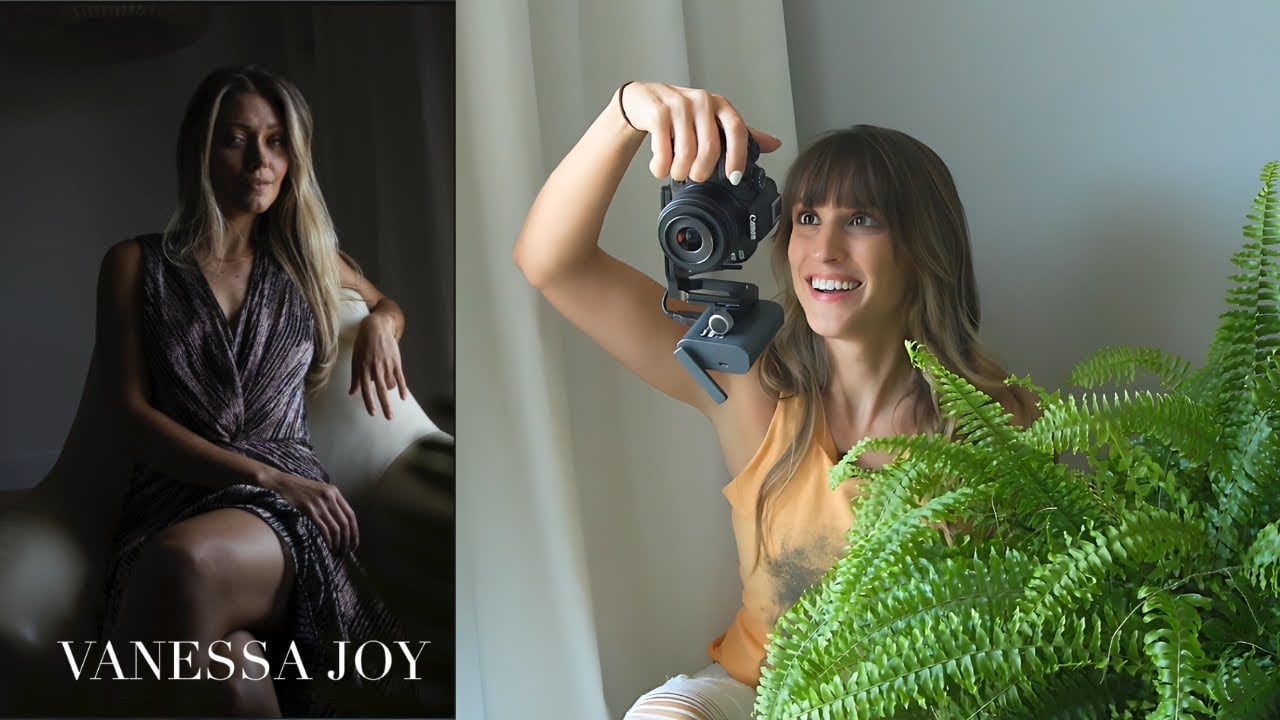

When someone tells you they are a natural light shooter, what do you immediately think? You probably assume that they are probably a wedding or consumer portrait photographer, perhaps they admire Sue Bryce, and that they go for the “bright and airy” look. However, this doesn’t need to be the case.
You can be a predominantly natural-light photographer and still create a variety of different lighting and looks. You can be a natural-light shooter and still have an in-depth knowledge of light and how to manipulate it to do exactly what you wish. In this video, Vanessa Joy shows us some of her favourite natural-light portrait tips to achieve different looks with minimal equipment.
In the video Vanessa walks us through two different types of lighting looks that she is creating using natural light. The first is the ubiquitous ‘light and airy‘ look that is extremely popular, and for good reason. It is relatively easy to achieve, clients love it, and it is usually extremely flattering for women over a certain age. Sure, it is used a lot and can almost seem a little cliched, but it’s a great staple to have under your thumbs, so to speak.
Light and Airy Portraits
To create a light and airy portrait, you need to use bright, diffused natural light and a complementary background.
Lighting Choice: Choose a space with abundant natural light. Large windows or open doors are ideal for providing soft, even illumination. Position your subject so the light falls gently on their face, creating a bright and welcoming atmosphere.
Diffusion: This is the key element to shooting beautiful soft naturally lit portraits. A sheer piece of fabric or curtain works extremely well, essentially you are creating a huge softbox from a window. Bonus points if the light is bouncing through the window from a light coloured building opposite.
Reflector: Use a large reflector to bounce light back onto your subject. Use can use a white foam board, a 5-in-1 reflector, or even a white towel in a pinch.
Background: Opt for a light-colored background to enhance the airy feel. Neutral tones like white, beige, or pastels work well. The background should reflect light and not compete with your subject.
Foreground Elements: Adding elements like a fake plant in the foreground can introduce softness and depth to your photos. These elements blur out and create a dreamy effect.
Dark and Moody Portraits
The second type of image that Vanessa creates is a dark and moody vibe. For this, think Old Masters like Rembrandt and Caravaggio. It can be fun to create these types of photographs, and in many ways they are just as simple as the bright and airy feel.
Creating dark and moody portraits involves the opposite approach to bright photographs. Aim to use shadows and contrast to evoke a dramatic, intense atmosphere.
Lighting Choice: Use split lighting or shoot on the shadow side of your subject’s face. This technique emphasizes details and textures, creating a more intense and dramatic effect. Even in well-lit environments, positioning your subject to play with shadows can transform the scene. You can also create Rembrandt lighting by having your subject turn their face away from the window until you have the effect you want.
Background: Contrary to popular belief, you don’t need a dark background to achieve a moody photo. A neutral or even light background can work if you manipulate the lighting and shadows effectively.
Editing: Editing plays a crucial role in achieving the final look. Adjust the split lighting, pull back highlights, and open up shadows to fine-tune the contrast and details.
Mastering portrait photography with natural light involves understanding how to manipulate lighting and backgrounds to achieve your desired style. You often need to use a lot of reflectors to bounce the light around, and unlike with strobes, you are confined to the window and room layout for the light position. What you gain from having fewer pieces of equipment you lose from these constrictions, in my opinion.
However, if you happen to find yourself in a room with beautiful natural or ambient light, there is nothing else quite like it. Learn what to do with it, use it, and enjoy it! It’s about as pared back as portrait photography can get, and it is entirely achievable to get beautiful photographs straight out of camera. I almost always bring a couple of strobes with me on a shoot, but if I find good light I am running with it!






